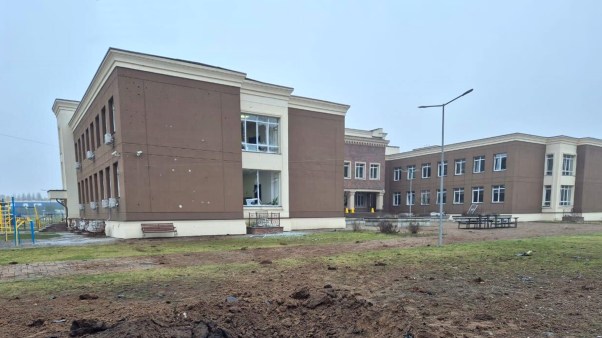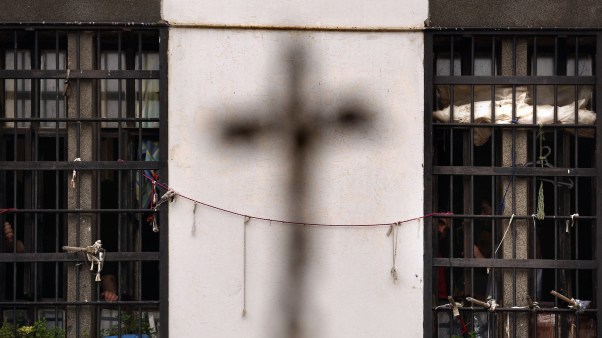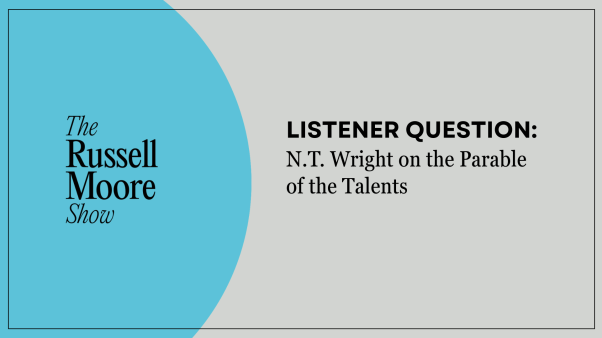Two things were immediately apparent about five-year-old Joshua: he was highly intelligent and he was passionate about phones. Each Sunday morning in my kindergarten classroom, Joshua would report the latest factoid about AT&T or recite his litany of memorized phone numbers. But when Joshua was asked to join the sitting circle with his classmates, he was often unresponsive.
To the casual observer, he might seem oblivious to the activity around him—but ask him a question and his clipped response was almost always correct.
One morning when Joshua would not stay in his seat, a new assistant held him in his chair, determined to discipline his unconventional behavior. Joshua began to scream.
Although Joshua looked and sounded like a normal child in so many ways, I had long suspected he shared a diagnosis with my own two sons. Months later it was confirmed. Joshua had Asperger's syndrome, a high-functioning form of autism.
Once considered odd, or simply unruly and misbehaved, we now know that an estimated one-in-100 children, teens, and adults struggle to navigate our world because of spectrum disorders like PDD-NOS, Asperger's syndrome or other social/emotional/behavioral conditions like ADHD, bipolar disorder and oppositional defiant disorder, to name but a few.
From Burden to Blessing
You hardly need a Ph.D to recognize them in your congregation. He is the parishioner who always stands too close and invades our personal space. She is the young teen who unwittingly blurts out embarrassing truths. She is the child who clasps her head in her hands, complaining that the music hurts her ears. He is the seemingly immature 12-year-old who begins to melt down and scream when he loses a game. He is the amazing genius who can wow us with his talents, yet struggles to tie his own shoes.
We've known them and their "types" all our lives but often did not understand how to live with them, love them or learn from them. Recently the removal of one autistic boy from a church service to provide "a distraction-free environment" made national news. We have often misread their behaviors as willfully bad, sometimes even crediting a portion of the blame to poor or ungodly parenting.
"It's harder when a child looks normal and they misbehave," explains Connie Hutchinson, director of disabilities ministry with the First Evangelical Free Church of Fullerton, California. "People immediately ask, 'What kind of parent are you?'"
She recalls the day she received a phone call from a single mom, exhausted from battling such misconceptions and who simply wanted a place to belong. "'The Mormons won't take us, the Catholics won't take us—will you take us?' And I told her about our ministry."
Not only did the woman and her son find a place to belong and be understood, they found a place where others began to benefit and grow because of them.
"As it turns out, her son loves worship music more than anything. He comes and sits next to my husband on Sunday mornings. We're just used to Adam," Hutchinson says of the boy's exuberance in worship. "One day the music minister came over to my husband and asked, 'Is this your son? I just want you to know that I now worship at a different level because of him.'"
Seeing the Disabled Differently
Hutchinson tells the families at her church to view the disabled as divinely provided opportunities to learn patience and love. They are often the catalysts for growth that only come when we experience the "different" among us, the "other," whose ways of being and doing force us to exercise spiritual muscles we wouldn't otherwise even know we possess.
"We will sometimes send letters home to parents to explain that there's a new child in their class with Downs or autism or whatever, and we tell them that their children will have the privilege of learning how to love another," Hutchinson says about the church's desire to communicate that special needs children not only need compassion but they teach us to develop it as well. "One of our church's mothers has come to realize that a purpose of her autistic son, John, is to teach others tolerance and compassion."
Our response as a culture and as a church is clearly changing.
The encouraging report by such groups as Joni and Friends, a ministry devoted to promoting the care and inclusion of those with disabilities, is that between 15 to 20 percent of churches now have some kind of intentional ministry for the disabled. And while many of these ministries were initially intended to address the needs of the physically disabled, they are beginning to address the needs of the "invisibly" disabled as well.
"We've known them all our lives but often did not understand how to live with them, love them."
Causing this shift is a growing collective awareness. "I've been involved with disabilities ministries for 20 years, and when I was younger it seemed that if a family was involved in a church and happened to have a disabled child, they could try to blend in. They just attended but nothing special was done," says Pat Verbal, manager of curriculum development at Joni and Friends International Disability Center in Agoura Hills, California. "But media awareness is greater now and stats are up. The 'Me Generation' is more aggressive in asking 'How can we do this?' Finally, leaders are saying we have to do something and that's a great shift. They're finally asking 'How?'"
According to Verbal, the church has moved away from telling families to go elsewhere, given the fact that these families now comprise a significant portion of our population (an estimated 15 percent according to a June 2011 report from the World Health Organization). "There's more awareness; people are staying and they're pushing," Verbal explains. As we continue to mature as the Body of Christ, a greater effort is clearly being made to reach out and love those who struggle to navigate at a social, emotional and often cognitive (mental processes) level.
Starting Small
For the churches only beginning to explore the question, What can we do?, getting started can seem daunting. The good news is that according to churches already out-there-and-doing-that, a church does not have to be large, have a hefty budget or become a disability expert overnight. It simply starts with a heart for one family at a time. It starts with a Joshua.
"I think a pitfall is to think it has to be a big program," says Dawn Clark, director of disability ministries at College Church in Wheaton, Illinois. Clark, who has seen the ministry grow from four to over 30 children and adults in the last eight years, believes the effort must simply be intentional, beginning with the skills of a resource person. "Lots of churches try to informally meet the need, but to make it intentional, they need a resource person and that's not so common."
Starting small also means taking it one person's need at a time. "Just start with the kids that have ADHD, Asperger's syndrome, Downs—they're all there," Clark says of her own church's experience. "Meet their needs, one child at a time, and gradually it may become a program."
For the First Church of the Nazarene of Pasadena, California, one family's need became a source of help for the many who have since followed. "One of our families has a son with autism," says Julie Keith, special needs pastor of the church. "The mom went through depression after the diagnosis and they came to our church because we would include him in our children's program. They've since become so involved. They are now a huge part of this ministry. They believe in it and are helping others."
People outside the church are taking notice. Caseworkers in the city, impressed by the church's practical compassion, now recommend the church for its monthly parent and sibling support groups. From buddies or "shadows" to assist children who need it, to educating women at Mothers of Preschoolers International (MOPS) about the early signs of various disorders, to offering scholarships for families to attend special needs retreats, the church's commitment is clear, as is its resulting growth.
Role of the Leader
But like so many successful church ministries, and the expansion that often follows, it needs more than a committed few laypeople. It has to have a champion. According to those who are experiencing success, it has to have a voice that comes from the pulpit.
"For our church it is a no-brainer," Keith explains about her church's commitment to inclusion. "Our biggest champion is our pastor. It is key to have a pastor with a vision for special needs. He wants this to be at the forefront of what we do as a church."
This has certainly been true of the Evangelical Free Church of Fullerton. "I think the first thing is that it's important it comes from the top," Hutchinson says, crediting the church's former pastor, Chuck Swindoll and his associate, with the formation of their disabilities ministry. "If you don't have an advocate, it isn't going to happen. I think what helped us most was that we tell the congregation: 'This is the DNA of our church.' Early on it was an all-church disability Sunday, but it is most effective when a pastor tells why we value those with disabilities."
Today, the Fullerton church provides a wide range of supports. But according to Hutchinson, it's not about having a fancy building or a large budget. Helping these families and individuals become contributing, fully-embraced members of the church body begins more simply. It starts when pastors provide opportunities to dispel fear of the unknown by humanizing disabled members.
When six-year-old-Tyler, son of a family at the The Bridge Evangelical Free Church of Conejo Valley in Newbury Park, California, underwent a hemispherectomy six years ago, the lifesaving surgery left him with unexpected challenges. "He was a bright child but now had developmental delays, problems with spatial awareness and social boundaries," says Rhonda Cattley, former director of the disabilities ministry.
Once it was realized that Tyler would need a buddy to help him succeed in Sunday school, Cattley confesses that it was difficult to find help. "We put notices in the bulletin, I contacted people, and we made announcements for four or five weeks. No response. Then we asked the pastor to interview the family in front of the church. After, we got five people to volunteer. If people don't hear it from the pastor's mouth, they won't see it as important."
Putting faces to names and generally getting disabled ministries front-and-center takes many forms. A church may turns its spotlight on their disabilities ministry one Sunday each year. Or they may regularly offer testimonies about the efforts of those touched by disabled persons. Or maybe they include bulletin inserts which celebrate the accomplishments of those with disabilities. Whatever the action, they all help soften hearts and open minds of church members.
The Ripple Effect
The pulpit isn't the only avenue of communication about this essential issue. Creating a support group for parents and siblings, offering counseling for the four-out-of-five marriages of special needs children which end in divorce, or fostering Bible studies with mentors for older teens and adults are just some of the ways a church can help those who often feel they are struggling alone.
Perhaps most powerful, however, is the church's ability to change the attitudes and hearts of the next generation.
"I volunteered with my daughter at a retreat for special needs families, and I saw the impact it had on her," says Nancy Biedry, former high school disability ministries team coordinator at College Church in Wheaton, Illinois. "I kept thinking, why not bring this home to help the next generation help families with disabilities?"
She approached the high school students of her church to partner with younger disabled students as inclusion buddies, to help lead worship and to organize an informal friendship-building time.
The Stars Ministry that resulted helps students understand the scope of a disability and helps them to develop empathy. They are more inclined to be friends through the course and learn by experience that people with disabilities are part of the Body of Christ, not a project," Biedry explains of the ministry goals.
Two weekends each year, College Church offers its high school students another transforming experience. "We present material in a two-hour training time to talk about what syndromes are and it breaks down walls of fear and ignorance. We educate them on disabilities like autism, PDD, Downs and cerebral palsy—we hit the ones that are most common." Biedry explains. "It works. They learn that although people have disabilities, they also have abilities. They come to appreciate others more."
The impact is being felt beyond the walls of the church.
"Parents are telling us it is carrying over into high school. Kids stop and say 'Hi' at school in the halls; there are some walls breaking down and they're finding they had more in common than they thought," Biedry says.
At The Bridge Evangelical Free Church in Newbury Park, that mandate is shaping the way children see other children at a very early age. "What helps with inclusion is having a children's ministry at each grade level where we talk about a different disability for each year," Cattley says about their program that highlights physical disabilities as well as ADHD and autism." It helps because it gets kids talking and we talk about how to be a friend and how they're just like us."
Fulfilling God's mandate to love one another, however, can look very different from church to church. For the leadership at McLean Bible Church in Tysons Corner, Virginia, that mandate has created a sizeable focus and budget for disabilities ministry, making it a flagship of innovation, teaching and inspiration for others around the country.
"We have to adapt and change and adjust … We go as learners."
Hosting a yearly Accessibility Summit and opening a new respite house just last year, the church strives to offer practical help to churches, families and organizations wanting to serve the needs of the disabled in their communities.
Yet it is the small church that in many ways has the advantage. "It doesn't take money or large size," Hutchinson says, pointing out that a small church plant in their area is successfully including a child with Down's syndrome.
For some churches, practical help may be as simple as providing a buddy that will allow a child to be included in a classroom. It may mean finding simple ways to socialize with a potluck, or offering parents a break by looking after their children one night a month.
In some cases, just being aware that simple sensory solutions like changing the brightness of a light, or providing earplugs to diminish the volume of loud praise music, or providing a space where it is acceptable to move, rather than sit for a sermon, may be all it takes to remove the stress from an otherwise enjoyable experience.
If there's one lesson to be learned from churches successfully addressing the needs of the invisibly disabled, however, it's that one size does not fit all. Every child, teen, and adult must be treated on a case-by-case basis. According to those in the know, learning from the parents or caregivers is essential.
"We have to adapt and change and adjust," Verbal explains. "I want teachers to be aware and I want to support volunteers so they know the management plan and know the child's sensory issues. I have one person who learns from parents and communicates with them. We have to ask what they can try to help us understand. We go as learners."
Kelli Anderson has two sons with Asperger's syndrome. She's the author of Divine Duct Tape (Foxburrow).
Copyright © 2012 by the author or Christianity Today/Leadership Journal. Click here for reprint information on Leadership Journal.









